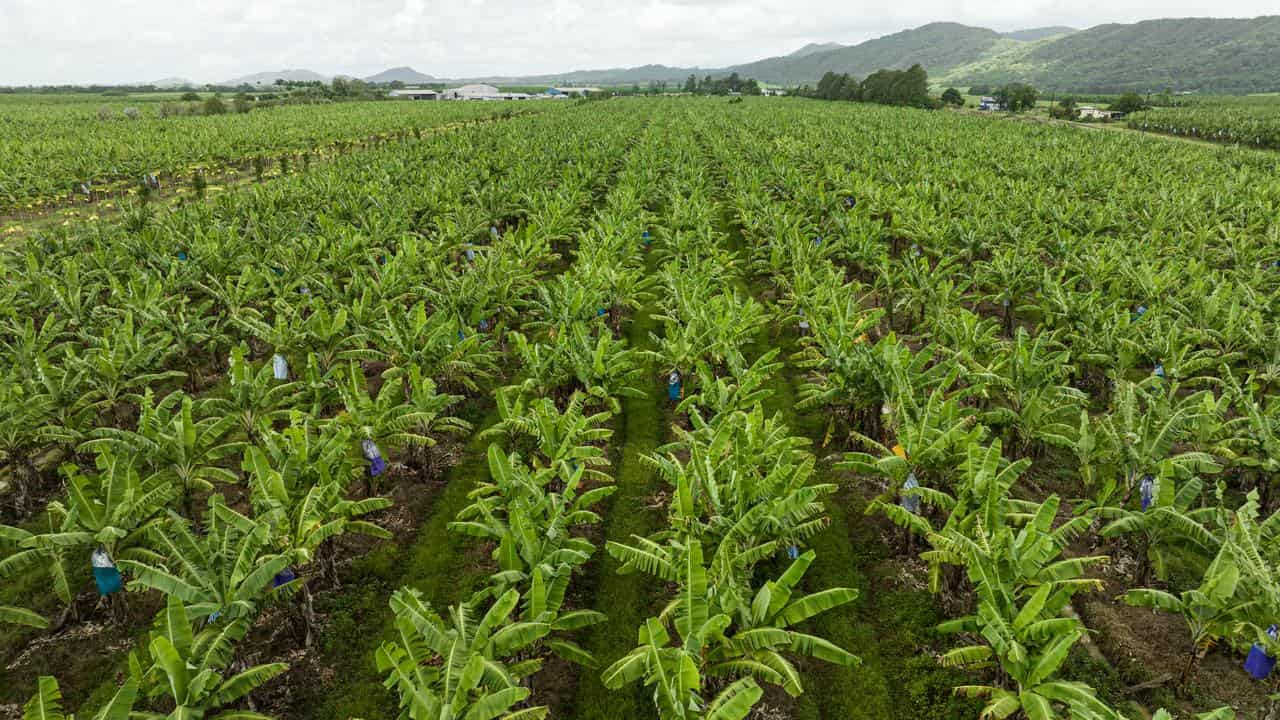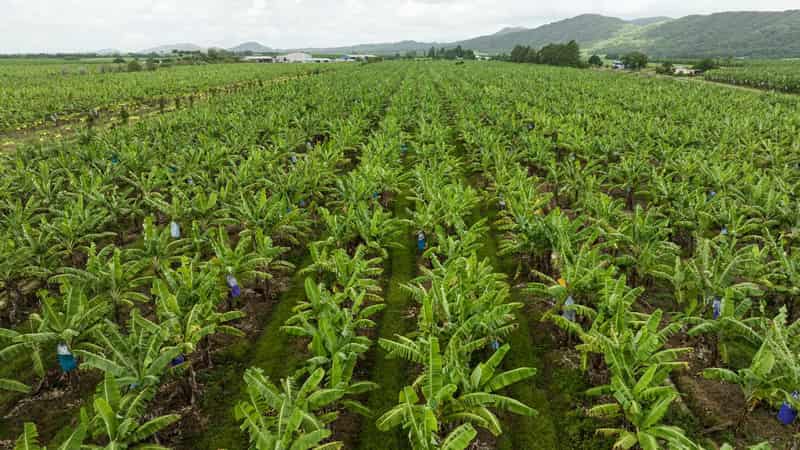
At Shepparton in Victoria's fruit bowl Bo Silverstein is trying to grow things a little differently.
The third generation fruit producer is pushing the limits of what he can achieve without the chemicals his farming grandparents had to rely on.
"I want to get it out there that we're not just 'dumb ass' farmers, that we don't just grow a tree and make heaps of money," the Goulburn Valley grower says.
"We're all trying pretty hard to make your produce the best it can be."
Passionate about giving consumers a better eating experience, the orchardist has moved away from fertilisers to sustainable methods.
"You can't have a nice active soil profile when you're still using Roundup (herbicide) and insecticides on the soil," he says.
"I expect my crop load to be the same maybe but, with the lack of chemicals, I might end up with a little bit of a pest problem here and there."
His inspiration came from the other end of the continent where North Queensland banana growers Dianne and Frank Sciacca helped develop an insecticide free farming method 25 years ago.
"I'd been eating the red-tipped bananas for a while and kept wondering why they're so much better, why they'd last so much longer," Mr Silverstein says.
The Sciaccas pioneered Red Tip Ecoganic bananas after noticing their reliance on chemicals was leaving the ecosystem on their Innisfail property out of whack.
The soil lacked any life and was reliant on fertilisers and chemicals, so they turned to Mother Nature
"It's all about recognising the things nature has given you and using that to understand how you can manage your cropping within nature," Mr Sciacca says.
"If I don't look after these beetles and if I don't have these butterflies and if I don't have this fungus, then it's a downhill slope."
Eight Queensland properties are now on board, growing bananas, avocados and papayas, including the Sciacca's farm where research is carried out.
"The biggest thing I see with growers is they don't want to use chemicals, they don't want to use products that destroy their soil," Diane Sciacca tells AAP.
Since 2017 the number of insects recorded on monitored sites on the property has almost doubled.
"Soil that is alive and healthy grows food that has flavour, the dry matter is more dense, and gives a better shelf life," she says.
"We saw the biggest change in soil health happen after 15 years; you don't get soil health just turn around overnight."
Tony Pattison has been studying the Sciacca's improving topsoil health for more than a decade and believes their method works.
The Queensland Department of Agriculture biology expert has been trying to understand how Ecoganics can be used more widely.
"The whole industry is trying to catch up to with what they are doing ... to improve their soils," Dr Pattison says.
"The method the Sciaccas have developed has allowed them to improve their soils as well as being able to get premium price for their product."
And he says the creature friendly farming technique is effective beyond bananas.
"For any horticultural crop it's about trying to get that diversity back into the soil," he says.
But there are drawbacks including lower yields while the soil improves.
Bo Silverstein is now trying to work out how he can use the Ecoganic method to grow apples, pears and plums and still turn a profit.
All going to plan, his Ecoganic pink ladies will be in supermarkets next season.









